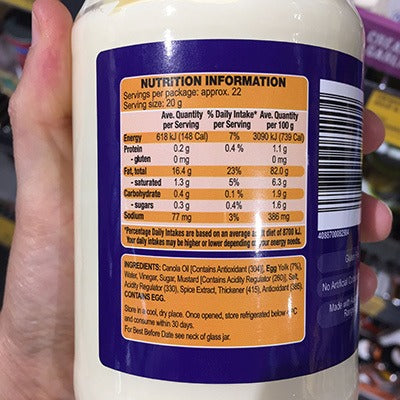Effective Comparison of Mediterranean Diet vs Paleo: What Works Best in 2025?

Effective Comparison of Mediterranean Diet vs Paleo: Understanding Key Differences
The Mediterranean diet and the Paleo diet are two popular eating patterns often recommended for their various health benefits. In today's fast-paced world, understanding these diets' fundamental differences is essential, especially as they continue to gain traction in 2025. The Mediterranean diet focuses on traditional foods from the Mediterranean region, prioritizing whole foods, healthy fats, and nutrient-rich ingredients. In contrast, the Paleo diet draws inspiration from the Paleolithic era, emphasizing lean proteins, fresh vegetables, and naturally sourced foods while avoiding processed products and refined sugars.
This article will delve deep into the core principles of both diets, examining their health benefits, key components, and effectiveness in promoting overall wellness. By the end, you will be equipped with valuable knowledge about each diet's strengths and drawbacks, enabling you to make informed dietary choices that align with your personal health goals.
In this comparison, we will explore crucial aspects such as meal planning, nutrient density, cooking techniques, and the impact of food choices on cardiovascular health and weight loss. So read on to discover what works best for you and your family!
Key Components of the Mediterranean Diet
Building on the fundamental understanding of each diet, let's explore the Mediterranean diet's core elements that contribute to its widespread acclaim and numerous health benefits.
Focus on Whole Foods and Nutrient Density
The Mediterranean diet emphasizes whole, minimally processed foods such as fruits, vegetables, whole grains, lean proteins, moderate dairy, and healthy fats, particularly from olive oil. This nutrient-rich composition promotes high fiber intake and antioxidants, which help combat inflammation and boost overall health. The diet is designed to support a balanced intake of macronutrients, ensuring that individuals receive adequate energy while still focusing on nutritional quality.
Incorporating Healthy Fats
Healthy fats are a cornerstone of the Mediterranean diet, with olive oil being the primary source. Additionally, nuts, seeds, and avocados provide omega-3 fatty acids, which promote cardiovascular health and support cholesterol management. Interestingly, the diet encourages fish consumption, particularly fatty fish like salmon and sardines, which are excellent sources of protein and essential nutrients.
Plant-Based Focus with Lean Proteins
While the Mediterranean diet includes lean meats, fish, and poultry, it predominantly focuses on plants. This characteristic aligns with the principles of a plant-based diet, emphasizing fresh produce, legumes, and whole grains. By prioritizing plant diversity, individuals are encouraged to explore various cooking methods and flavor profiles, enhancing the overall dining experience.
Core Principles of the Paleo Diet
With an understanding of the Mediterranean diet established, let's investigate the fundamental principles that define the Paleo diet and its unique approach to dietary habits.
Return to Ancestral Eating Patterns
The Paleo diet aims to replicate the eating habits of our ancestors during the Paleolithic era. This dietary approach eliminates processed foods, refined sugars, and grains, significantly simplifying meal planning. Proponents advocate consuming foods that can be hunted or gathered, focusing on unprocessed ingredients like lean meats, fish, vegetables, fruits, and nuts.
High-Protein, Low-Carb Focus
A notable characteristic of the Paleo diet is its high-protein, low-carb emphasis. By avoiding grains and legumes, the diet promotes lower carbohydrate intake, thereby influencing blood sugar levels and energy metabolism. The emphasis on whole foods and lean proteins can contribute to weight loss and enhanced energy levels, especially for individuals seeking to adopt a more primal approach to eating.
Mindful Eating Practices
Mindful eating plays a significant role in the Paleo diet, encouraging individuals to slow down and savor their meals. This method can lead to improved portion control and reduced cravings, contributing to a healthier lifestyle. Additionally, the Paleo diet fosters awareness of food quality and sourcing through discussions about ingredient sourcing and shopping tips.
Health Benefits of Each Diet
With a foundational understanding of both diets, it's essential to evaluate the health benefits they offer, as these advantages can greatly influence dietary choices.
Weight Loss and Management
Weight loss is often a primary goal for individuals considering dietary changes. Studies have shown that the Mediterranean diet fosters sustainable weight loss due to its balanced meal composition and emphasis on fresh ingredients, while the high-protein nature of the Paleo diet can lead to rapid weight loss for some individuals. However, adhering to the Mediterranean diet can promote healthier long-term weight management through improved eating habits and lifestyle changes.
Cardiovascular Health
Research supports the Mediterranean diet's positive effects on cardiovascular health, with its focus on healthy fats, whole grains, and antioxidants contributing to lower cholesterol levels and overall heart health. In contrast, the Paleo diet's focus on lean proteins and avoidance of refined sugars may positively impact heart health, but the long-term effects of this dietary approach are still under investigation.
Diverse Nutritional Benefits
Both diets offer unique advantages in terms of nutrient profiles. The Mediterranean diet is rich in antioxidants and anti-inflammatory foods, which may enhance longevity and gut health. The Paleo diet, with its emphasis on whole foods and nutrient density, can also offer substantial nutritional benefits when properly executed. For those seeking a higher fiber intake, incorporating more fruits and vegetables from the Mediterranean diet is advisable.
Meal Planning Strategies for Success
Once you understand the characteristics and benefits of both diets, implementing effective meal planning strategies can support your dietary journey.
Creating Balanced Meals
For the Mediterranean diet, balanced meals typically consist of a variety of proteins, healthy fats, whole grains, and colorful vegetables. By integrating seasonal produce and utilizing various cooking techniques, individuals can enjoy diverse and flavorful meals. On the other hand, the Paleo diet prioritizes protein sources and minimizes carbohydrates, advocating for a creative approach to meal variety that aligns with the avoidance of processed foods.
Incorporating Meal Timing and Portion Control
Meal timing and portion control play vital roles in both diets. The Mediterranean diet encourages moderate meal frequency, focusing on nutrient quality and mindful eating practices to help maintain healthier weight levels. Paleo dieters often utilize intermittent fasting or time-restricted eating patterns to further impact energy levels and health outcomes. Both dietary strategies emphasize the importance of paying attention to hunger cues and recognizing dietary preferences.
Diverse Cooking Methods
Cooking methods are a critical aspect of both diets. Mediterranean cuisine features varied techniques such as grilling, baking, and sautéing, emphasizing the importance of preserving nutrients and flavors in meals. Conversely, the Paleo diet advocates for simpler preparation methods, such as roasting, steaming, and stir-frying, while avoiding added sugars and unhealthy fats. Both approaches encourage culinary creativity by showcasing diverse flavors and cooking techniques.
Making Sustainable Choices in Eating
As we examine the implications of both diets on the broader scope of sustainable eating practices, it becomes clear that aligning these dietary choices with personal values can enhance overall satisfaction.
Ingredient Sourcing and Food Quality
Both the Mediterranean and Paleo diets prioritize high-quality ingredients and mindful consumption. Choosing organic, locally-sourced produce can enhance nutrient density and support local agriculture. Furthermore, understanding food labels and ingredient sourcing plays a role in fostering healthier eating habits while respecting sustainability principles. Emphasizing whole foods and seasonal eating can also contribute to a more satisfying and enjoyable dining experience.
Finding Balance and Diversity
Incorporating a variety of foods is crucial for both diets. The Mediterranean diet promotes food diversity by including various grains, vegetables, and proteins, while the Paleo diet encourages exploring different meat and vegetable options. By thinking creatively about meal variety, individuals can enjoy satisfying and healthy meals that align with their dietary preferences.
Creating Family-Friendly Meals
Finally, successful meal planning should consider family preferences and dietary restrictions. Both the Mediterranean and Paleo diets can be adapted to accommodate various needs and preferences, making it easier to create family-friendly meals. By sharing culinary traditions and cooking techniques, families can enjoy healthy eating together while preserving a positive cooking environment.
Conclusion: Choosing the Right Diet for You
In conclusion, both the Mediterranean diet and Paleo diet offer distinct advantages in promoting health and well-being. Understanding their core principles, health benefits, and meal planning strategies can help you make informed dietary choices that align with your personal health goals. Whether you prefer the nutrient-rich, balanced meals of the Mediterranean diet or the high-protein, whole foods focus of the Paleo diet, both approaches can enhance your daily life and overall wellness.
Remember that embracing a healthy lifestyle is a journey, and both diets offer unique opportunities to foster sustainable eating habits, mindful consumption, and ultimately, healthier outcomes. Choose what resonates best with you, enjoy the culinary experience, and explore the many flavors these diets have to offer!

